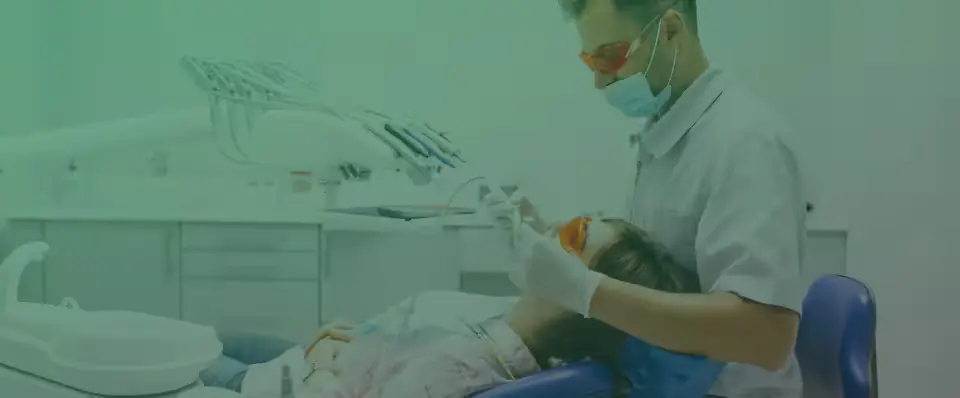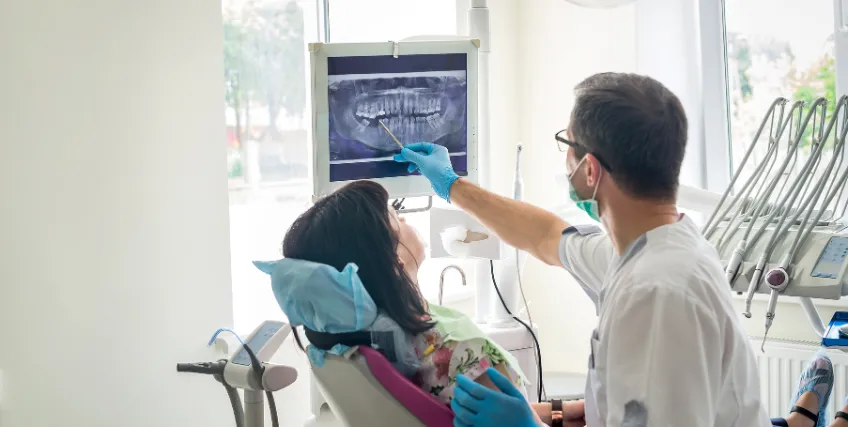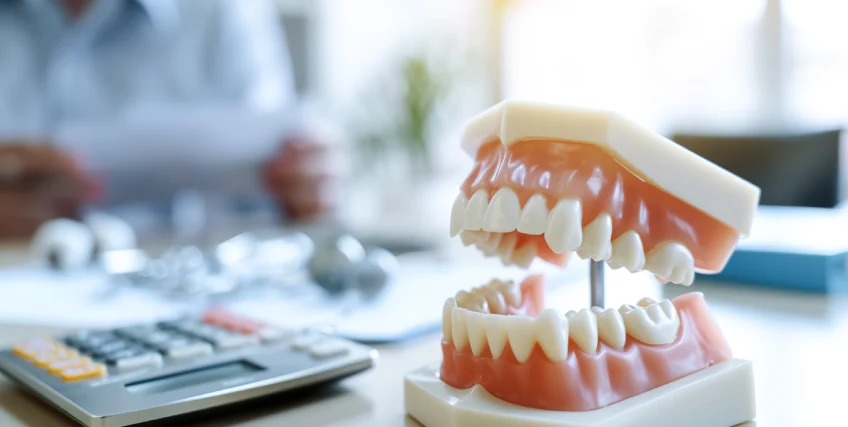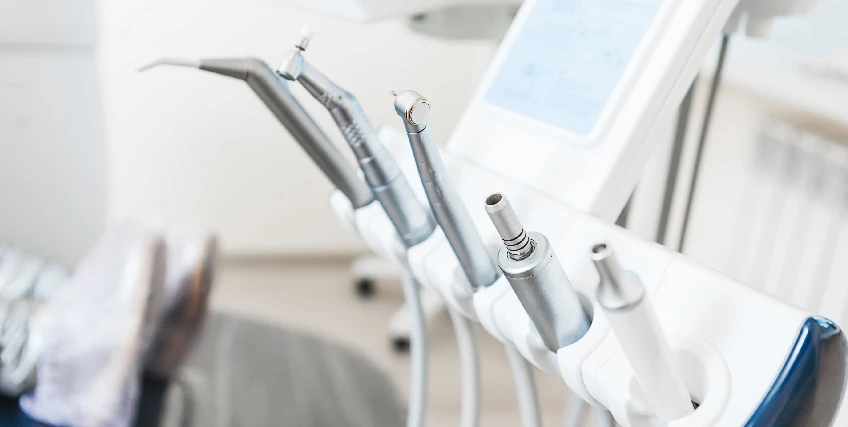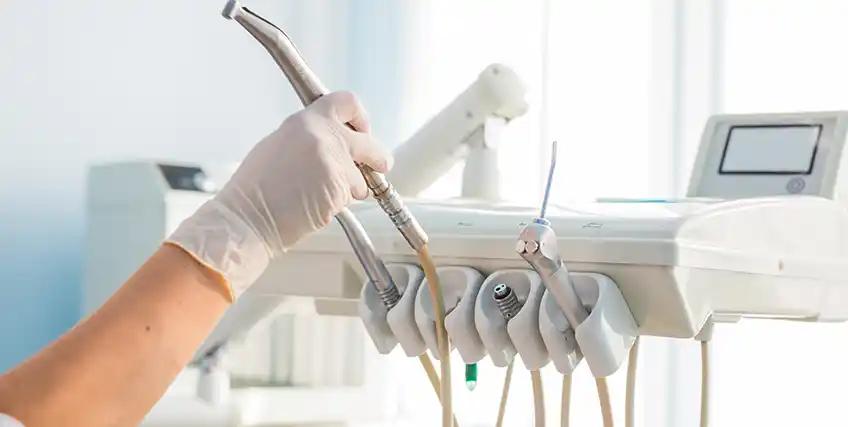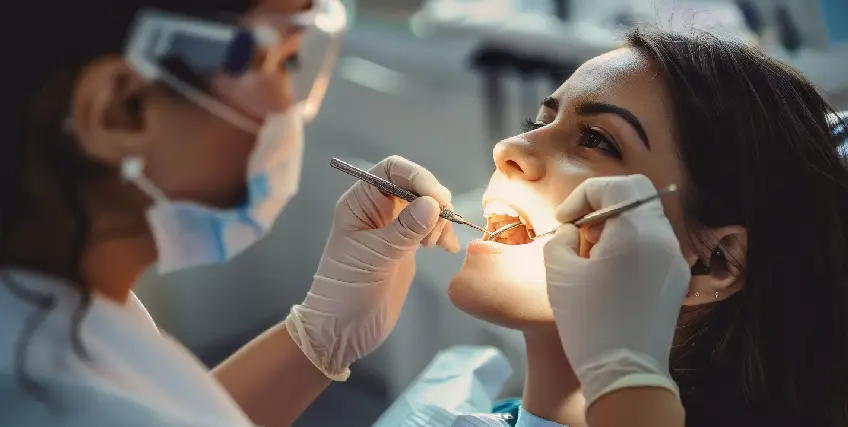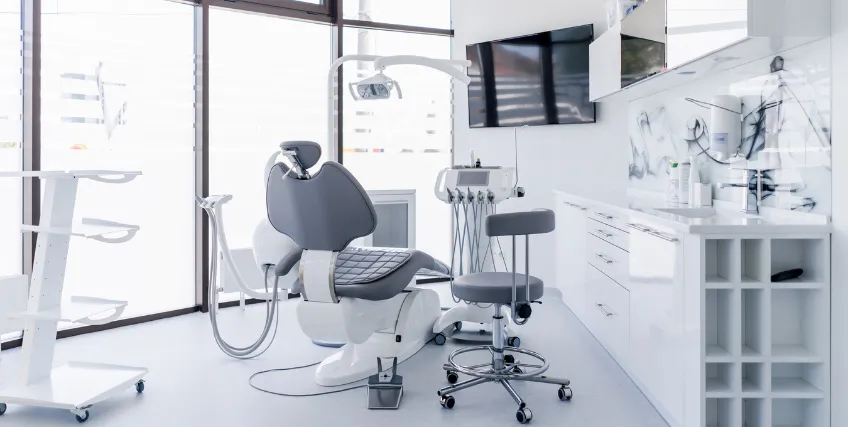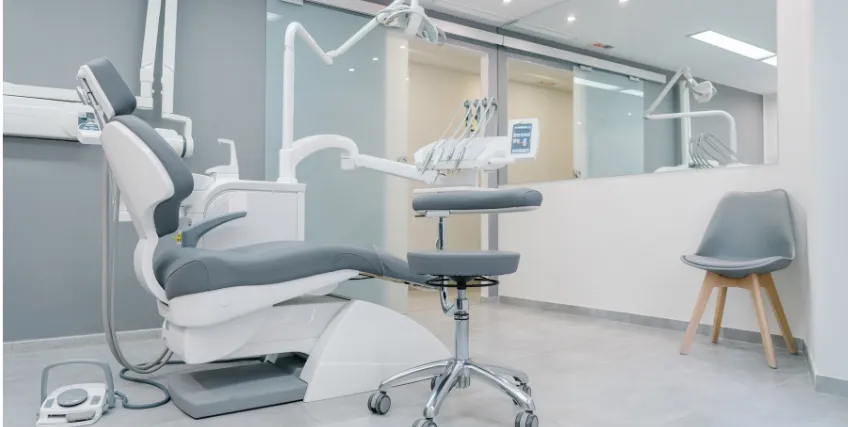Flexible Dental Loans for Dentists:
How to Choose the Right Financing
Looking for Business Financing?
Apply now for flexible business financing. Biz2Credit offers term loans, revenue-based financing, lines of credit, and commercial real estate loans to qualified businesses.
Set up a Biz2Credit account and apply for business financing.
For dentists, dental practices come with short-term and long-term financial demands. These include expensive dental equipment, training, and advanced technology, which may create excessive pressure on cash flow. Subsequently, patient volume and insurance reimbursements also fluctuate, making financial planning more complex, than in many other professions.
In such a scenario, dental loans can help with buying a dental practice, expanding a clinic's footprint, upgrading equipment, and managing a clinic's daily expenses. Therefore, access to a stable dental loan program allows dentists to focus solely on patient care while keeping their clinic's lights on. Loans for dentists come with flexible terms, competitive dental practice loan rates, and tailored options for both new and established practices.
U.S.-based medical professionals, who are looking into buying a medical practice or financing option for dentists, can opt for business expansion financing. It provides the financial support to work with confidence. These specialized lending options are suitable for business owners in the dental sector, who want to take their practice to the next level, whether through adding more operatories, launching a new location, or introducing high-demand dental services. With the right dental loan programs in place, dentists can strengthen their competitive edge and build a future-ready practice.
How Dental Loans Work
U.S. dental loans are types of financing that are aimed at assisting the intention of buying a dentist’s office, practices to expand, by funding equipment, renovation, or working capital. These dental loans function by granting an amount of capital that is paid back within a specified period, in the form of fixed monthly payments with interest.
How They Work:
Funding
Lenders provide a lump sum of money to the business.
Repayment
The company pays back the loan in periodic monthly installments, within a fixed term.
Interest
Loans carry an interest rate, either fixed or variable, and longer payment periods can result in increased total cost; even though the monthly payments will be less.
Purpose
Funds can be utilized for different business purposes, for example, acquiring costly equipment such as an X-ray machine, remodeling a clinic area, or covering routine operations
Why Consider Dental Loans
Dental loans are designed to support dental practices, on a daily to yearly basis. These financing options cover expenses related to equipment, facility upgrades, staffing, and cash flow management. Further, borrowing money, especially a dental loan from lenders to own a dental practice, can be considered a future investment.
So, whether you are fulfilling your dream of buying a dental clinic or upgrading the current facility, loans for dental clinics offer the much-needed financial support to keep your business running smoothly. With smart financing, dental practices can provide quality patient care, invest in modern technology, and build long-term growth. The key advantages of dental loans include:
- Quick access to funding through straight-forward applications
- Flexible repayment choices
- Financing for expansion, equipment upgrades, and working capital needs
Benefits of Loans for Dental Work
Dental loans can play a significant role in helping dental practices achieve business growth, meet evolving business needs, and execute strategic expansion plans with confidence. Whether the goal is to open a new location, invest in new equipment, or take the clinic to the next level, the right business expansion loan offers tailored loan programs and flexible lending options for both small business owners and established practitioners. These financing options for dentists, support clinic upgrades, technology improvements, and working capital requirements, while offering transparent loan terms, competitive rates, and clear disclosures that simplify the application process. With a suitable dental loan amount and strong business banking foundation, dentists can focus on patient care and long-term sustainability rather than cash flow constraints. Here are some of the key dental loan solution benefits:
Smooth Cash Flow Management
Maintaining a steady cash flow is crucial for dental practices due to varying patient visits and insurance reimbursements. Dental loans provide the necessary capital to manage daily operations, ensuring you can cover expenses like payroll, supplies, and utilities without disruptions.
Practice Expansion Opportunities
Expanding dental practice requires substantial investment, whether you're opening a new branch or adding more services. Dental loans offer the financial support needed for such expansions, enabling dentists to grow their practice without depleting their reserves.
Equipment Upgrades and Modernization
Investing in the latest dental technology is essential to stay competitive and improve patient care. Dentist loans ensure that practices can acquire or upgrade expensive equipment like X-ray machines, dental chairs, and digital scanners.
Competitive Advantage
Securing dental loans can give your practice a competitive edge by enabling you to offer better services, invest in marketing, and attract more patients. Whether it's through service expansion or facility upgrades, by opting for dental loans, business owners/dentists can foster long-term patient loyalty.
Explore Loan Options for Your Dental Business
Choosing the right dental loan starts with understanding the objectives of a particular business while matching them to the best available financing options. Whether you're seeking advance care financing to tackle delayed reimbursements or an equipment loan for tech upgrades, clarity on your business goal is crucial.
Term Loans
A lump-sum loan repaid over a fixed term with predictable monthly payments. Can potentially be used for: Equipment purchases, facility renovations, marketing, or debt consolidation.
SBA Loans
Backed by the U.S. Small Business Administration, SBA 7(a) and 504 loans offer lower interest rates and longer repayment terms for qualified applicants. Can potentially be used for: Large-scale expansion, property acquisition, or refinancing existing debt.
Business Lines of Credit
A flexible funding option that lets you draw funds as needed and pay interest only on the amount used. Can potentially be used for: Managing payroll, purchasing supplies, or bridging cash flow gaps.
Equipment Financing
The equipment itself serves as collateral, allowing practices to acquire expensive tools without upfront costs. Can potentially be used for: Diagnostic devices, surgical instruments and patient monitoring systems.
Commercial Real Estate Loans
Used to purchase, build, or renovate medical office spaces. Can potentially be used for: Facility expansion, new clinic construction, or property acquisition.
Step-by-Step Checklist: How to Choose the Best Dental Loan
Dental Loan Tips for Strong Applications
Talk to different, credible lenders before applying for a dental loan; review, understand and compare before taking a final call. The earlier a bank is included in the financing process, the easier it may be for you to secure a dental loan that helps your practice grow. Here are some tips for a strong application for a dental loan, which may expedite your approval chances:
Improve Credit Score
A high credit score is essential to qualify for a fitting interest rate. Make all payments timely, keep credit card balances low (preferably below 10%), and avoid applying for many new accounts at the same time.
SBA Loans
Backed by the U.S. Small Business Administration, SBA 7(a) and 504 loans offer lower interest rates and longer repayment terms for qualified applicants. Can potentially be used for: Large-scale expansion, property acquisition, or refinancing existing debt.
Manage Debt-to-Income (DTI) Ratio
This ratio is your monthly debt payments to your gross monthly income. The lower your DTI ratio, the better your ability to accept and pay back new debt.
Save Up For Down Payment
For buying a dental practice, having substantial down payment indicates to lenders that you are committed and can save you money in the long run.
Prevent Negative Amortization
If you have existing loans, make sure your payments consist of at least interest and some principle. This keeps your overall debt from growing over time.
Prepare Your Answers
Be prepared to answer questions about the new/established dental practice, finances, and future goals. This helps dental loan lenders understand your business and intentions better.
Securing loans for buying a medical practice or dental clinic expansion, can help dentists/business professionals take their company to newer heights. Whether there is a need for funds for a new location, new equipment, hiring staff, or strengthening daily operations, having a clear plan for your business growth is essential. There are many lending options available, including bank loans, SBA programs, online business financing platforms, and alternative financing solutions, such as crowdfunding. Each loan option has different loan terms, eligibility criteria, and a few potential costs, such as an origination fee; so it is important to review all disclosures and claims, before signing any dental loan application.
Established businesses and new business owners alike, should initially assess business needs, the estimated dental loan amount, and the most suitable application process. Traditional business banking may offer competitive rates and fixed rate products, but online business lending options can provide quicker approvals and extensive flexibility for startup founders with ambitious plans. Ensure that bank account records, revenue statements, and financial projections are all in one place, to support your loan request.
A well-structured business expansion strategy coupled with appropriate dental loan funding, can qualify your dental company in the race towards long-term success. Take the time to research programs for small business loans, compare interest rates of different banks, and understand repayment structures before signing the final deal. With the right approach, your expansion journey will align with your goals, strengthen performance, and fuel sustainable growth.
Trusted by Thousands of Small Business Owners in America.**
Simply because we get what you go through to build a business you believe in.
**Disclaimer: All stories are real, as told by real business owners. Customers do not receive monetary compensation for telling their stories.
From One Entrepreneur to Another: We Get You
We understand what's behind building a business you believe in.
All stories are real, as told by real business owners. Customers do not receive monetary compensation for telling their stories.



Small Business Loans in Dental Loans Articles
How to Choose the Right Dental Financing Companies for Your Practice
Today, dental practices in the United States operate in a fast-evolving healthcare environment.
How to Select the Right Dentist Loan to Start your Practice
Dental financing options can help healthcare professionals finance and start their dental clinics.
Startup Success: How Recent Graduates May Qualify for Competitive Dental Practice Financing Rates
After graduating from dental school, a diminishing number of dentists open their own practice.
Dental Equipment Financing: Modernize Your Office With Loans for Dental Work
Many dental practices across the U.S. feel pressure to upgrade their dental services, yet budget constraints hold them back
Should You Buy or Lease Dental Equipment? A Financial Breakdown
If you're running a dental practice, the tools you use matter as much as your skills. From dental chairs and handpieces to intraoral cameras
How Loans for Dental Work Can Support Hiring and Expansion for Small Dental Clinics
In today’s competitive healthcare environment, small dental clinics often face many challenges. Clinic owners need to manage patient care
How Loan Terms Influence Dental Practice Loan Rates and Repayment Plans
Launching or expanding a dental office in the U.S. typically involves a significant financial investment.
What’s the Best Time of Year to Buy a Dental Practice?
Buying a dental practice is one of the biggest decisions a dentist makes. It takes more than just finding the right location or equipment.
How Your Credit Score Affects Dental Work Loans Rate, and How to Improve It
A strong credit score not only helps determine eligibility for dental work loans but also has a dramatic impact on the rate
FAQs on Dental Loans
1. Are there loans for dentists with limited credit history?
For dental loans for dentists with limited credit history, expect stronger documentation, higher pricing, or collateral. A co-signer or larger down payment may help.
2. What is a good term for dental equipment?
Match the term to the useful life. Many choose 5 to 7 years for larger systems. Smaller tools may sit on shorter terms.
3. Can I refinance existing dentist loans?
If rates have improved or terms are better, refinancing may cut costs. Factor in fees and any prepayment penalties.
4. How do I compare dental practice loan rates quickly?
Ask for APR, not just nominal rate. Then check total cost over the term and the repayment schedule. Include fees.
5. Is guaranteed dental financing real?
Legitimate lenders do not guarantee approvals. Be careful with any claim of guaranteed dental financing.
Frequent searches leading to this page
Term Loans are made by Itria Ventures LLC or Cross River Bank, Member FDIC. This is not a deposit product. California residents: Itria Ventures LLC is licensed by the Department of Financial Protection and Innovation. Loans are made or arranged pursuant to California Financing Law License # 60DBO-35839

